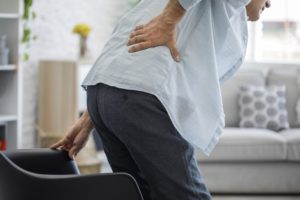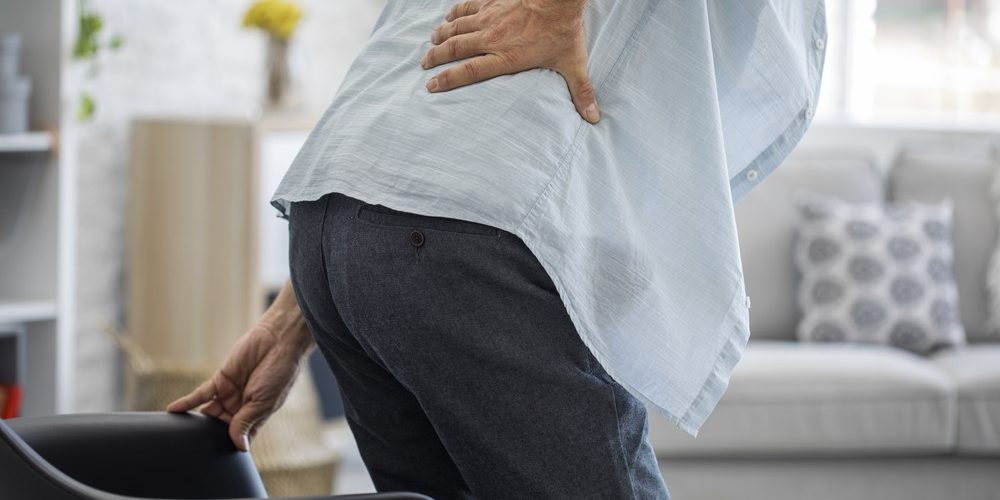 Eighty percent of the population will experience back pain at some point in their lives. With back pain being the number one source of chronic pain and the leading cause of disability worldwide, anything you can do to prevent back pain is beneficial. Here are 10 everyday triggers of back and neck pain that you may not be aware of, and how you can avoid these common causes of pain.
Eighty percent of the population will experience back pain at some point in their lives. With back pain being the number one source of chronic pain and the leading cause of disability worldwide, anything you can do to prevent back pain is beneficial. Here are 10 everyday triggers of back and neck pain that you may not be aware of, and how you can avoid these common causes of pain.
- Your wallet or purse. Sitting on a wallet can create structural imbalance which leads to back pain by driving one side of your body higher than the other. Similarly, carrying a heavy purse on one shoulder causes a spinal and neck tilt that can often result in neck or back pain. If you have your wallet in your back pocket, simply remove it before sitting down, and if your purse is heavy, lighten the load and only carry the essentials and switch shoulders regularly to avoid imbalance.
- Lack of exercise. Living an inactive or sedentary lifestyle can increase back pain because the back and surrounding muscles become stiff, weak, and deconditioned.Try to exercise for at least 30 minutes every day, even activities as simple as walking are beneficial for spine health.
- Your couch. Don’t fall victim to “couch slouch.” Poor posture, slumping and slouching can increase back pain and forward head posture puts excessive strain on the joints of the neck. Practice proper posture to reduce pain and boost joint health.
- Smoking brings with it a long list of adverse health effects, including negative impact on the health of your back and neck. Nicotine not only decreases blood flow to your organs but also to your spine and can worsen an existing condition. If you smoke, you should quit.
- Obesity and nutrition. Excessive weight adds significant strain to the spine. By shedding those extra pounds you’ll improve your overall health while also lessening the strain on the joints of your spine. Adopt a healthy diet like the Mediterranean diet which is anti-inflammatory and can help you lose weight. A healthy diet = a healthy spine.
- Dehydration. The body is about 60 percent water. If you’re not drinking enough water and become dehydrated, you could experience back pain. The discs, which are the shock absorbers of the spine, are susceptible to dehydration. The inner part of the disc has a lot of water content, and if you become dehydrated the disc can shift its stress to the outer part of the disc, which can then tear resulting in back pain.
- Prolonged sitting or driving. Sitting for prolonged periods without movement can cause back stiffness and muscle spasm. Take frequent breaks to stand, walk and stretch whether your sitting at a desk all day for work, or on the road for an extended period.
- Your cell phone. Constantly looking down at your phone can lead to “text neck.” For every two inches your head is down and forward equivalent to adding 20 pounds to the top of your head which can eventually lead to neck pain. Instead, hold your phone out in front of you just below eye level.
- Your feet. If you have flat feet or hyper-pronated feet (meaning, the ankle bone turns inward, and the rest of the foot turns outward. This causes too much body weight to be placed on the inside of the foot – this happens when a person’s arch is flattened as weight is applied to the foot), it can cause skeletal imbalance up though your knees, hips and back. Having the right shoes play a significant role in back pain management. Look for shoes with good arch support and cushioning.
- Anxiety and stress. Research shows that high stress contributes to muscle tightness, which leads to reduced range of motion and subsequent back pain. Daily mindfulness meditation, deep breathing and yoga can help reduce back pain and muscle spasm.
David J. BenEliyahu, DC, DAAPM, DABCSP is the Administrative Director of the Back & Neck Pain Center at Mather Hospital.

